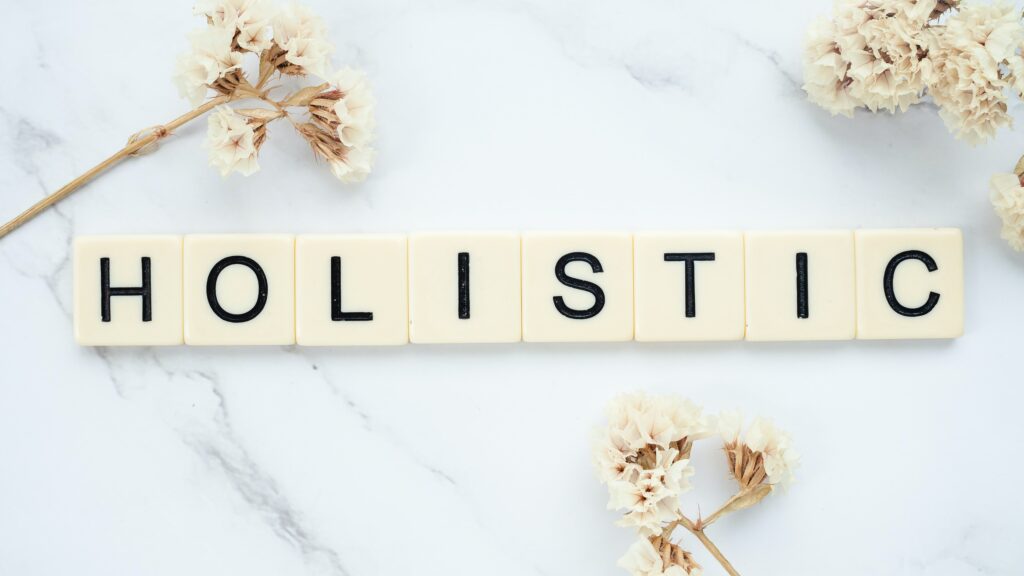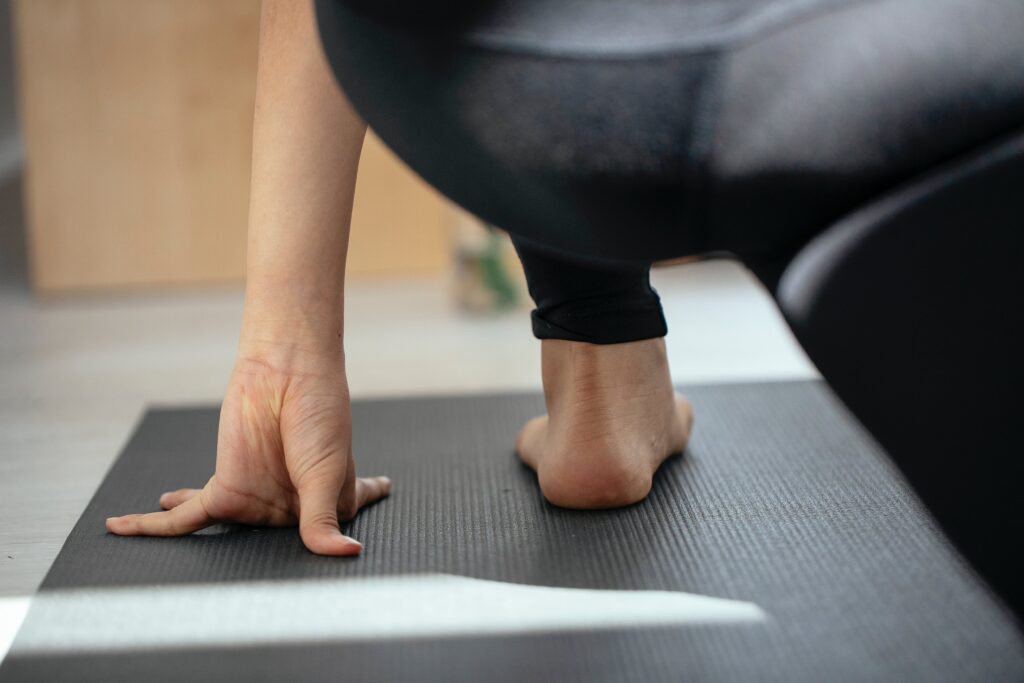Holistic mental health care can be described as a person-centered approach that centers on the use of natural remedies, embracing the core of one’s being beyond the reach of conventional treatments. The beauty of holistic care in battling anxiety, depression, and other mental health conditions is its fluidity; it evolves with one’s circumstances, becoming a sanctuary for seeking solace beyond pills and procedures.
However, many members of society are not yet fully aware of the benefits of holistic treatment.
The holistic modality stands out for its nurturing essence and all-encompassing approach—an approach we need to spread more awareness about so the benefits can extend beyond. Here, we take a glance at the power of holistic mental health care for the mind, body, and spirit.
As a mental health professional, guiding individuals toward the most healing and sustainable practices is the pinnacle of care. The collaborative essence of holistic care often brings a plethora of potential solutions to the table, This can include what we eat, how we move, activities and environments that are better suited for us and so much more.
Let’s dive into holistic mental health care and unearth strategies that cultivate mental peace and physical wellness.

Aims of Holistic Mental Health Care
Susan B. Trachman, M.D., informs, “Functional, or holistic mental health care is an emerging approach to mental healthcare that emphasizes the biological, psychological, and social factors contributing to mental health.” (2023).
With its rich palette of natural remedies, is not just a treatment, but a lifestyle harmonizing the mind, body, and soul.
One such alternative might be going to hypnotherapy to address drug and alcohol addiction rather than the typical suboxone or naltrexone route. This route is quite effective and I have heard, “It won’t work for me I am too smart to be hypnotized.” Well in fact being hypnotized is largely more difficult for those with higher executive function or focus, not necessarily based on intelligence. Those who have experienced trauma, have PTSD, ADHD or have a more imaginative thinking are better suited for hypnotherapy.
Another holistic alternative that is on the cutting edge is psychedelic therapy for trauma work to reduce fear, process suppressed emotions, and release inner turmoil. This can allow for new insights and perspectives to emerge. This done correctly has been very effective on the more severe cases of trauma that have not been as responsive to traditional means.
For people diagnosed with Attention Deficit Hyperactivity Disorder (ADHD), strategies such as mindfulness practices, biofeedback, high levels of protein, Vitamins B and C, and exercise routines (i.e., yoga and martial arts) can do wonders. Also if one has ADHD among other things it makes it difficult for neurons to respond to dopamine. So it would be beneficial to consume food that organically increases l-tyrosine or dopamine (such as avocado, almonds, chocolate, apples, coffee just to name a few).
Offerings of holistic mental health care can include:
- Lifestyle Modifications
- Robust Social Supports
- Mind-Body Practices
- Alternative Therapies (ie acupuncture, hypnotherapy, massage therapy)
- Environmental Modifications (living in an environment with lest stimuli)
- Consultations with holistic care providers like naturopathic doctors and specialized mental health professionals
Holistic Treatments for Anxiety and Depression
So, how can symptoms of anxiety and depression be reduced using more of a natural approach?
Lifestyle Modifications through Diet, Exercise, Sleep, and Stress Management
Implementing better nutrition and improving cardiovascular health, sleep hygiene, and stress management strategies are critical to reducing symptoms of anxiety and depression.
For instance, good cardiovascular health can increase brain blood flow, lower stress, improve sleep, enhance cognitive function, and boost self-esteem. Some of this you might be nodding your head others might feel this is cliche. But it is cliche for a reason. Your body being stable has just as much of impact on your health, as what goes on in your brain. In fact have good gut health has been largely linked to mental health. It also can go the other way according to one Harvard study, “Therefore, a person’s stomach or intestinal distress can be the cause or the product of anxiety, stress, or depression. That’s because the brain and the gastrointestinal (GI) system are intimately connected.”
Improved sleep hygiene (i.e., creating a calming environment, having a consistent sleep schedule, limiting stimula
nts close to bedtime, and engaging in relaxing activities before bed) can reduce stress, support emotional resilience, regulate appetite, improve concentration, and strengthen the immune system—all beneficial for improved mental health and decreasing symptoms of anxiety and depression.
Similarly, providing the body with adequate nutrition and proper fuel for one’s lifestyle can lead to optimal brain-body performance. Try eating a balanced diet, paying attention to omega-3 fatty acids to improve mood, and minimizing processed foods, sugar, and caffeine. (All easier said than done, I know!) Also many studies have shown that a plant based lifestyle can greatly improve mood and energy (if done correctly).
Equally important, engaging in moderate exercise for 30 minutes most days of the week and incorporating daily relaxation techniques to reduce stress (i.e., deep breathing, journaling, talk therapy, engaging in activities and hobbies of interest).
For any readers: Dr. Uma Naidoo, Harvard-trained Psychiatrist, and nutrition specialist, does an exemplary job describing the food and mood connection in her book, This Is Your Brain on Food. Dr. Naidoo explores the impact of nutrients on mood and cognition and discusses the science of the gut-brain relationship, highlighting the role of the microbiome on one’s mental state and behavior. The book walks through several diets and eating patterns, linking their nutritional profile to mental health effects, and helping the reader make more informed food choices. Highly recommend!
Remember, staying consistent can bring about the biggest changes.
Small steps are big wins!
Strengthen Social Support
Maintaining relationships with friends and loved ones is valuable for countering many symptoms of anxiety and depression. Allowing oneself to be vulnerable and exploring feelings of trust can lead to a place of safety and security. Not to mention physical touch or hugs have shown to be quite effective in emotional regulation, reducing stress and increasing oxytocin.
Engage in Mind-Body Practice and Energy Work
Brain and body exercises such as meditation, yoga, martial arts, and tai chi are self-healing practices that focus on how energy can improve health and reduce stress levels. Such practices can promote healing and relaxation as well as improve emotional regulation.
Utilizing mind-body practices and energy work can make for a serious self-esteem boost and confidence builder!
Consider Alternative Therapies

Acupressure for emotional healing is an effective technique for managing stress, decreasing physical discomfort, regulating emotions, and healing from painful experiences or trauma. Placing appropriate levels of pressure on specific points of the skin’s surface—points connected to energy pathways in our body, known as meridians—helps to address emotional sources behind physical discomfort (i.e., headaches, nausea, muscle tension) and promote emotional healing.
Additionally, the study, Impacts of Acupressure Treatment on Depression: A Systematic Review and Meta-Analysis, found that acupressure helped reduce symptoms of mild to moderate depression and reduced anxiety in participants with psychiatric disorders, sclerosis, uremia, and osteoarthritis in both clinical and community settings.
Supplementing with vitamins (D and B, specifically), herbal remedies like St. John’s Wort, and even lavender oil can also help reduce symptoms of anxiety and depression.
*Always discuss introducing new supplements with a healthcare professional as some medications can interact with others.
A Promising Future for Holistic Mental Health Care
The holistic route brings a breath of fresh air to the rigidness of traditional mental health care.
In seeking traditional medical care for stomach upset, muscle tension, or difficulty sleeping, the first order of business is typically a pill, which often endorses a treatment plan that does not account for one’s unique circumstances.
The unique blend of holistic strategies not only targets undesirable symptoms of anxiety, depression, and other conditions but also cradles us in a wide assortment of healing practices, fostering a deeper connection between the mind, body, and spirit.
This ever-evolving field holds a promising future to unlock more natural, person-centered strategies, potentially reshaping the landscape of mental health care towards a more humane, understanding, and organic path.
Let’s see where change can bring us.
Disclaimer: I am not a licensed medical doctor, and this blog is to be used for informational purposes only and not to be used as a substitute for professional advice, diagnosis, or treatment. Mental health is an individualized matter and what works for one person may not work for another. If you are experiencing mental health concerns, always consult with a qualified healthcare professional who can assess your needs and provide personalized guidance.
References
DreamLife Recovery. (2022, September 23). Mind, body, Soul: A holistic approach to Mental Health. https://dreamliferecovery.com/mind-body-soul-a-holistic-approach-to-mental-health/
Lin J, Chen T, He J, Chung RC, Ma H, Tsang H. Impacts of acupressure treatment on depression: A systematic review and meta-analysis. World J Psychiatry. 2022 Jan 19;12(1):169-186. doi: 10.5498/wjp.v12.i1.169. PMID: 35111587; PMCID: PMC8783164.
Naidoo, U. 2020. This is Your Brain on Food: An Indispensable Guide to the Surprising Foods that Fight Depression, Anxiety, PTSD, OCD, ADHD, and More. Hachette Book Group. Sussex Publishers. (2023, April 22).
What is holistic psychiatry? Psychology Today. https://www.psychologytoday.com/us/blog/its-not-just-in-your-head/202304/what-is-holistic-psychiatry
https://www.health.harvard.edu/diseases-and-conditions/the-gut-brain-connection#:~:text=Therefore%2C%20a%20person’s%20stomach%20or,GI)%20system%20are%20intimately%20connected



